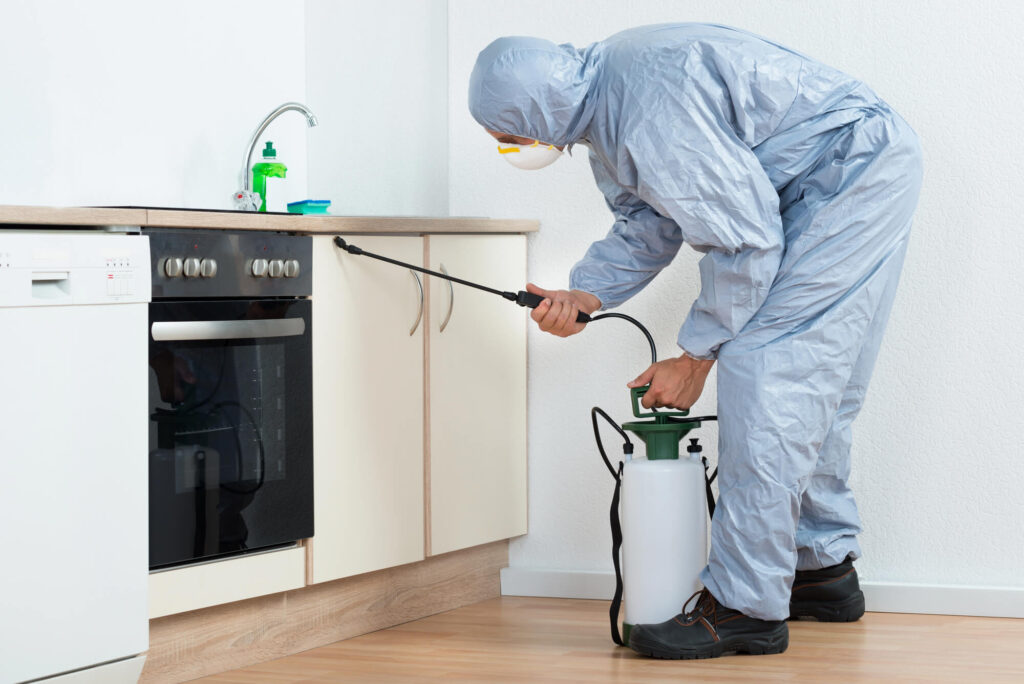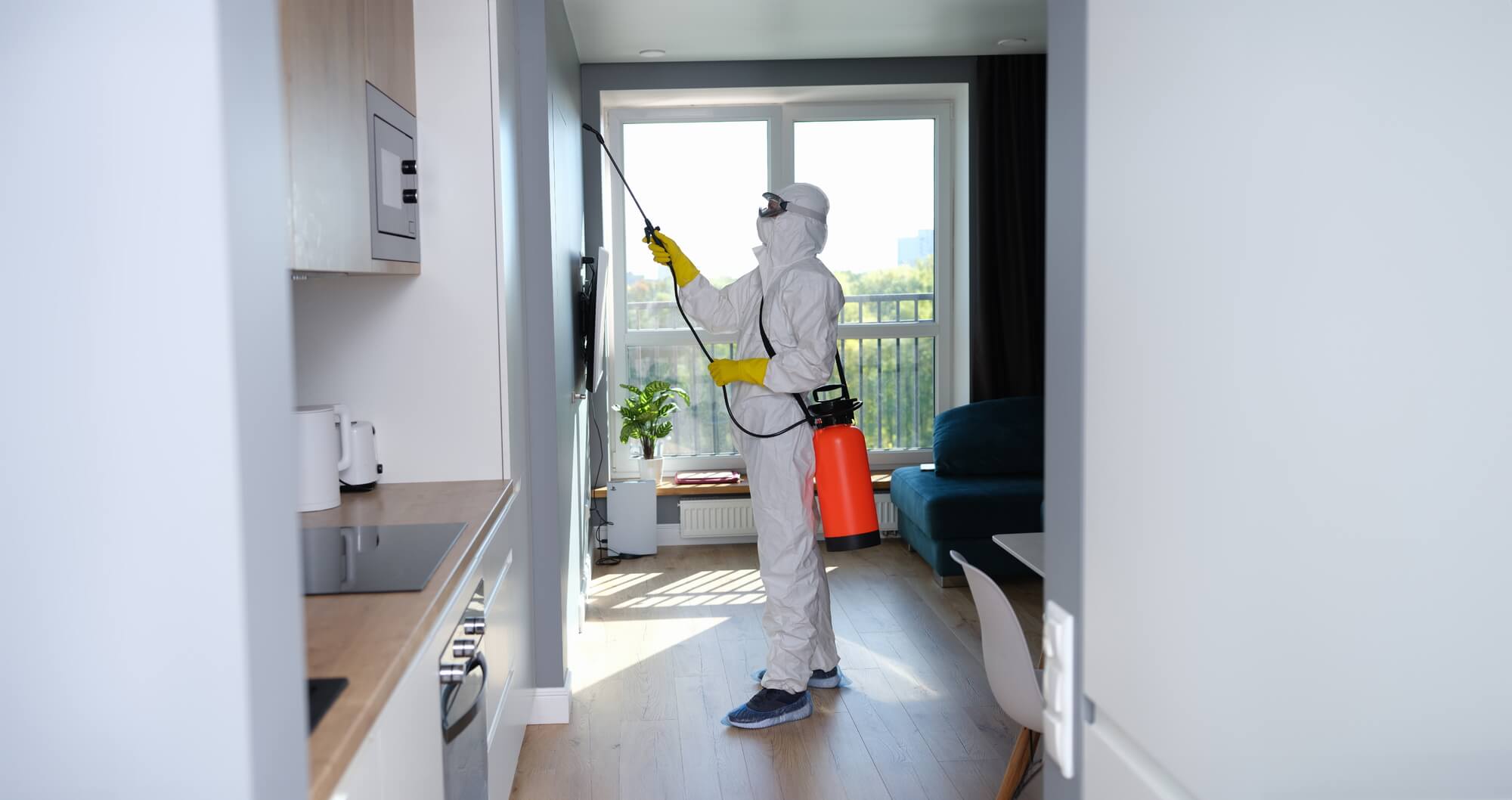The termite control industry is a critical subset of the broader pest control services sector, particularly because of the extensive and often hidden damage these insects cause to homes and businesses. As property owners increasingly prioritize structural safety and long-term asset protection, demand for professional termite inspection, prevention, and treatment services continues to rise.
Franchising in the termite control industry offers an attractive entry point into a growing and specialized market. Partnering with an established brand provides entrepreneurs access to tried-and-true business systems, technical training, national marketing, and ongoing support. These benefits significantly reduce startup risk and accelerate the path to profitability.
With more than $5 billion in annual termite-related damage in the U.S. alone, termite control presents a scalable business opportunity for entrepreneurs who want to enter a high-demand, recession-resistant sector with a reputation for recurring revenue and long-term customer relationships.
Opportunities in the Termite Control Industry
The termite control segment of the pest control industry is particularly promising due to the urgency and scale of the problem termites pose. With over 600,000 U.S. homes affected by termites annually and $5 billion in damage attributed to these insects each year, the market need for preventive and responsive termite solutions is enormous.
Technological innovation and sustainability trends are also reshaping the industry. Eco-conscious consumers, both residential homeowners and commercial property owners, are driving demand for green, integrated pest management (IPM) solutions. Meanwhile, advances in AI, IoT, and data analytics are helping pest control businesses detect infestations earlier, treat more effectively, and monitor environments with greater efficiency.
The broader U.S. pest control services market reached $24.9 billion in 2023 and is projected to hit $42.5 billion by 2032. Termite control represents a significant portion of that, especially in states with warm, humid climates where infestations are more common.
Franchisees entering this space benefit from growing demand, higher-margin services, and long-term maintenance agreements that build customer loyalty.
In addition to termite control, other types of pest control franchise opportunities that offer specialized pest management services and effective pest control solutions include mosquito control, critter control, tick control, and many more.
Understanding Termite Control Franchises
What is a Termite Control Franchise?
A termite control franchise allows an entrepreneur to operate under a reputable brand name while offering specialized termite inspection and treatment services. The franchisor provides training on pest biology, treatment methods, and business operations, as well as marketing, customer acquisition systems, critical software and technology, and ongoing operational support. Franchisees benefit from established processes, business plans, trusted branding, and access to proprietary technologies and supplies.
Facts About Termite Control Franchises
Initial Investment Estimate
Starting a termite control franchise generally requires an initial total investment between $45,000 and $150,000. This includes franchise fees, inspection and treatment equipment, training, licensing, and marketing.
Timetable to Full Operation
Most franchisees reach full operational status within 3 to 6 months. This timeline accounts for training, licensing, equipment setup, and initial local marketing efforts.
Estimated Profit
Profit margins can be strong in termite control, thanks to the specialized nature of the services and the recurring need for inspections and monitoring. However, annual profits vary based on region, demand, and operational efficiency.
Ongoing Fees
- Royalty Fees: Typically 5% to 10% of gross sales
- Marketing Fees: Usually 2% to 4% of gross sales for collective advertising efforts
Franchising vs. Independent
Startup Risks in the Termite Control Industry
Launching an independent termite control business carries several risks. Financial barriers are among the most significant. Without brand recognition, customer trust, or support systems, new business owners often struggle to secure financing or generate consistent revenue.
- Building a Customer Base: Independents face an uphill battle earning trust without an established name. This slows growth and complicates client acquisition.
- Marketing Challenges: Without access to proven marketing strategies, independents must build campaigns from scratch—a costly and complex endeavor.
- Operational Inefficiencies: Lacking standardized protocols can lead to inconsistent service delivery, higher costs, and lower customer satisfaction.
- Lack of Support: Independent owners often have no external guidance for licensing, compliance, or problem-solving. The franchise model offers mentorship, systems, and structured operations.
Resources and Support Available for Termite Control Franchises
Access to Proper Marketing Channels and Successful Campaigns
Franchisees benefit from traditional and digital marketing support, regional advertising, and national brand campaigns engineered by experienced marketing teams for each franchise unit’s target market. These tools drive customer acquisition and retention for each franchise unit.
Sales Training
Franchisors provide comprehensive sales training that equips owners and staff to handle objections, explain treatment plans, and close service contracts effectively.
Operational Guidance
Franchisees receive detailed manuals and standard operating procedures (SOPs) for job scheduling, customer service, inventory management, and fieldwork execution. Being offered an established and proven business structure reduces trial-and-error and ensures scalable success.
Flexible Franchise Agreements
Many termite control franchises offer flexible ownership models, allowing semi-absentee or fully active ownership depending on the investor’s lifestyle and goals.
Support Network for Problem-Solving
Franchisees can access peer networks, franchisee forums, and dedicated support teams to resolve issues from technical treatment questions to customer management challenges.

Why Choose a Termite Control Franchise?
Time Investment and Lifestyle in the Termite Control Industry
Management Hours per Week
Franchisees often spend 20–30 hours per week overseeing operations in their franchise units, reviewing sales reports, managing personnel, and handling client communications.
Operational Hours per Week
Operational commitments typically fall within a 40–50 hour range weekly per franchise unit, including inspections, scheduling, estimates, and technician dispatching. With an efficient team, owners can reduce hands-on time.
Holidays
Franchisees enjoy flexibility in choosing their schedules. Many opt for time off during off-peak seasons or adjust staffing to accommodate personal time.
Recommended Level of Involvement
Termite control franchises support varied involvement levels. Owners can be hands-on or adopt a managerial role with a trained team handling day-to-day fieldwork.
Termite Control Industry-Specific Advantages
High Demand and Recurring Revenue
Annual termite inspections and follow-up treatments create built-in recurring revenue. Homeowners and property managers rely on annual renewals to maintain warranties and avoid costly repairs.
Low Inventory and Overhead Cost
Compared to many service franchises, termite control requires minimal inventory. Treatment chemicals, monitoring stations, and inspection tools are affordable and manageable in a mobile setup.
Referral Value
Excellent service and accurate reporting often lead to customer referrals. Realtors, property managers, and HOAs frequently recommend reliable termite service providers to clients and tenants.
Recession Resistance
Because termites can silently destroy a structure’s value, residential and commercial clients act quickly regardless of economic conditions. This makes termite control services highly recession-resistant and vital.
As you can see, a termite control franchise provides owners with consistent revenue, operational flexibility, and a valuable public service, frequently at lower start-up costs compared to an independent business. Combined with franchisor support and brand equity, it delivers a compelling route to small business success.
Termite Control Franchise Service Lines and Opportunities
As part of the broader pest control industry, the termite control franchise sector includes a mix of focused and diversified extermination services. Some franchises concentrate solely on termite detection and treatment, while others bundle termite services with broader pest control offerings. Here’s a breakdown of key service lines within the industry:
Termite Inspection Services
Franchises offer certified inspection services for residential and commercial properties. These services identify signs of termite activity, assess risk levels, and provide written reports required for real estate transactions.
Termite Treatment Services
This core service involves eliminating active infestations using liquid termiticides, baiting systems, or advanced heat/fumigation treatments. Pest control franchises like this often use proprietary chemicals or equipment for more efficient outcomes.
Termite Prevention and Monitoring Plans
Ongoing prevention programs offer regular inspections and continuous monitoring using bait stations or sensors. These subscription-based services create recurring revenue and long-term client relationships.
Pre-Construction Termite Barriers
Franchises may provide soil treatments or install physical termite barriers during the early stages of building construction, helping developers comply with building codes and buyers secure long-term protection.
Real Estate Transaction Support
Termite clearance letters (Wood-Destroying Insect Reports) are often required during property sales. Franchises offering fast, reliable certification for realtors and buyers gain a competitive edge.
Integrated Pest Management (IPM) Solutions
Some franchises adopt eco-friendly or IPM-based approaches, minimizing chemical usage by integrating habitat modification, moisture control, and monitoring for targeted and sustainable results.
Add-On Services with General Pest Control
In dual-model franchises, termite control is bundled with general pest solutions for ants, rodents, cockroaches, and spiders. This allows many franchise units to upsell additional services and cross-market seasonal packages.
By diversifying service offerings and addressing both immediate and preventative termite issues, franchisees can build robust revenue streams while meeting critical property preservation needs.
The Investment: Costs and Returns
Initial Investment
Starting a termite control franchise typically requires an initial total investment ranging from $45,000 to $150,000. This total investment covers the base costs of franchise fees, equipment, initial training programs, traditional and digital marketing, and working capital. The exact amount can vary based on the franchisor and the specific market conditions.
Ongoing Fees
Franchisees should anticipate ongoing fees, which generally include:
- Royalty Fee Rates: 5% to 10% of gross sales. These fees are paid to the franchisor for continued use of the brand and support services.
- Marketing Fees: 2% to 4% of gross sales. These contributions go towards national and regional marketing campaigns that benefit all franchisees.
- Operational Costs: Variable expenses such as payroll, supplies, insurance, and maintenance.
Potential Returns
Annual profits for a termite control franchise can vary widely based on factors such as location, market demand, and management efficiency.
Factors Influencing Returns
Several factors can influence the potential returns of a pest or termite control franchise:
- Market Demand: Higher demand in densely populated or affluent areas can lead to increased business opportunities and revenue.
- Competition: The level of competition in your area can impact pricing and customer acquisition.
- Operational Efficiency: Effective management of resources, efficient scheduling, and maintaining high-quality standards can enhance profitability.
- Customer Satisfaction: A satisfied customer leaves positive reviews and referrals, which can drive repeat business and attract new customers, boosting revenue.
- Seasonality: The termite control industry can be seasonal, with peak demand during certain times of the year. Effective planning and marketing can help mitigate off-season slowdowns.
Financial Projections
Developing detailed financial projections based on your specific circumstances is crucial. Your business plan should include estimates about monthly revenue, expenses, and cash flow to ensure you have a clear understanding of the financial landscape of your franchise.
Disclaimer
The figures provided above are general estimates based on industry data and trends. Actual costs and returns may vary depending on specific franchise terms, local market conditions, and individual business performance. Prospective franchisees should conduct thorough research on their locations and target markets, consult with franchisors, and seek professional financial advice to obtain precise information relevant to their situation.
Investing in a termite control or exterminator franchise franchise offers substantial opportunities for profitability and growth, supported by a stable industry outlook and the advantages of operating under a well-known brand.

The Commitment: What It Takes to Succeed
Workforce Management
Successful franchisees must recruit and train qualified technicians capable of performing detailed inspections, handling specialized equipment, and communicating clearly with homeowners and commercial clients. Retaining a knowledgeable team ensures consistency, builds trust, and protects your brand reputation.
Navigating Seasonal Demand
While termite activity can be year-round, especially in warmer regions, spring and early summer tend to see heightened activity due to swarming. Franchisees should plan staffing, marketing, and scheduling proactively to take advantage of these seasonal peaks while ensuring stable cash flow in quieter months.
Commitment to Safety
Chemical handling, crawlspace inspections, and equipment use require strict adherence to safety protocols. Franchisees are responsible for training employees on PPE usage, chemical application guidelines, and environmental best practices to avoid liabilities and ensure workforce well-being.
Customer Relationship Management
The termite control business thrives on trust. Maintaining strong communication, honoring warranties, and educating clients on prevention measures are essential to customer acquisition and retention. Service transparency and responsiveness drive repeat business and referrals.
Leveraging Franchisor Support
Maximizing the franchisor’s resources—traditional and digital marketing templates, scheduling software, Google My Business management, supplier networks, and peer forums—reduces overhead, improves service quality, and supports business scalability. Engaged franchisees often outperform peers through deeper utilization of provided systems and brand assets.
Financial Planning and Management
Sound financial practices, including job costing, ROI analysis, and cash flow forecasting, are vital for long-term growth. Franchisees should monitor KPIs closely and allocate funds toward seasonal promotions, employee incentives, and expansion when possible.
Community Engagement
Establishing a presence in local real estate networks, homebuilder associations, or property management groups positions the franchise as a trusted service provider. Sponsorships, educational workshops, and home expo appearances increase visibility and generate inbound leads.
A successful termite control franchise owner demonstrates discipline, strategic focus, and commitment to excellence across operations, customer experience, and brand representation.
The Ideal Franchisee
The ideal termite control franchisee is someone who blends business discipline with a strong commitment to quality service and safety. They should be driven by both profitability and the responsibility of protecting customers’ most valuable assets—their homes and commercial properties.
Leadership and Business Acumen
Franchisees should be comfortable managing staff, optimizing operations, and setting a high standard for professionalism. Prior experience in sales, service management, or running a business is a plus but not a prerequisite when paired with determination and adaptability.
Problem-Solving and Technical Aptitude
Because termite control involves diagnostics, structural assessments, and treatment planning, franchisees benefit from having a detail-oriented mindset and technical curiosity. The ability to troubleshoot issues and assess property conditions adds credibility and enhances customer trust.
Customer-Centric Mindset
Excellent communication skills and a genuine concern for customer outcomes are essential. Franchisees must confidently explain inspection results, propose solutions, and deliver services with transparency and care, all of which are key to customer acquisition and retention.
Community Involvement and Ethics
Ideal candidates are active in their communities and maintain high ethical standards. Engaging with homeowners’ associations, local chambers of commerce, or real estate professionals helps grow trust and expand referral networks.
Passion for the Industry
While technical expertise can be taught, a genuine interest in home services, pest prevention, and long-term property protection helps franchisees thrive. Passion drives continuous improvement and a focus on delivering lasting value.
With the right combination of leadership, attention to detail, and customer focus, franchisees can build strong, resilient businesses that make a measurable difference in their communities.
Special Requirements and Considerations for a Termite Control Franchise
Special Requirements for a Termite Control Franchisee
Owning a termite control franchise comes with specific requirements that franchisees must meet. These often include:
- Initial Capital: Sufficient initial capital to cover base costs like franchise fee, equipment, marketing, and working capital.
- Management Skills: Strong management and leadership skills to oversee operations, staff, and customer interactions.
- Customer Service Orientation: A focus on delivering excellent customer service to build and maintain a loyal client base.
- Commitment to Safety: Adherence to strict safety protocols to ensure the well-being of employees and clients.
Licensing and Certifications
Operating a termite control business requires compliance with many state and federal legal and regulatory requirements. Most states mandate a Pesticide Applicator License or Structural Pest Control License, which involves passing exams and completing approved training. Franchisees may also need to obtain:
- Termiticide application certifications
- Wood-Destroying Organism (WDO) inspector credentials
- Continuing education credits to maintain licenses
Business and Operational Requirements
Franchisees are typically required to:
- Maintain a general business license and local operating permits
- Secure adequate liability insurance and workers’ compensation coverage
- Adhere to zoning regulations for vehicle parking and chemical storage
DOT and Transportation Compliance
If transporting termiticides or fumigants, franchisees must comply with Department of Transportation (DOT) regulations regarding vehicle labeling, handling procedures, and hazardous materials training.
Equipment and Vehicle Standards
Franchise systems often have guidelines for branded vehicle wraps, approved safety gear and equipment types, and mobile inspection tech. Vehicles must be outfitted to carry sprayers, baiting systems, PPE, and spill containment tools.
Environmental and Safety Protocols
With increased focus on sustainability and safe chemical use, franchisees must follow EPA guidelines, track pesticide usage, and implement spill prevention and disposal procedures. Some franchises also promote green termite solutions, such as borate treatments or eco-friendly bait stations.
Franchisor Support in Compliance
Reputable franchisors assist with regulatory onboarding by providing:
- Licensing prep materials and compliance checklists
- Insurance recommendations
- Safety training modules
- Vendor-approved equipment sourcing
Meeting these requirements ensures not only legal operation but also builds consumer trust and positions the franchise as a responsible and professional service provider.

Getting Started: Steps to Franchise Ownership
Research and Identify the Right Franchise
Begin by researching termite control franchise brands to understand their service offerings, reputation, and market presence. Evaluate franchise disclosure documents (FDDs), speak with current franchisees, and compare training, support, franchise fees, royalty fee rates, and territory opportunities.
Initial Contact and Discovery Day
Once you’ve shortlisted your top choices, reach out to the franchisors for more information. Participate in discovery calls and attend the brand’s discovery day—either virtually or in person—to meet the support team, ask questions, and see the business in action.
Secure Financing and Define Territory
Determine the financing available for the franchise—whether through SBA loans, personal capital, or other funding options. During this stage, you’ll also work with the franchisor to map and secure your exclusive service territory based on demographics and termite risk zones.
Legal Review and Franchise Agreement
Review the franchise agreement and FDD with the help of a franchise attorney and legal expert to understand your obligations, rights, and territory protections. Once confident, sign the agreement and pay your initial franchise fee and total investment.
Training and Launch Preparation
You’ll undergo training in areas such as termite biology, treatment protocols, sales, operations, and compliance. Simultaneously, the franchisor will help you set up business systems, acquire equipment, hire initial staff, and deploy local marketing campaigns.
Grand Opening and Operational Support
After completing training, launch your business with guidance from the franchisor. You’ll have access to ongoing support, performance reviews, refresher training, and marketing assistance to help drive growth and customer acquisition.
Following this structured path ensures you’re well-prepared to open your franchise with confidence and compliance from day one.
Your Path to Success with a Termite Control Franchise
Investing in a termite control franchise means entering a stable, growing industry with meaningful impact. As property owners seek trusted partners to protect their homes and commercial assets, franchisees can build strong recurring revenue models and establish themselves as vital community service providers.
With a proven brand behind you, robust training, and a market driven by real demand, the opportunity to scale a successful and sustainable business is within reach.
Take the next step—reach out to leading termite control franchise providers, schedule your discovery call, and begin building a business rooted in trust, protection, and long-term value.





